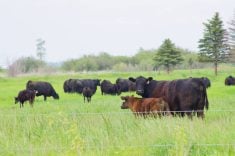Farmers should be involved in decision making when genetically modified products are on the table, says the head of the Canadian Federation of Agriculture.
However, when farmers cannot pay their bills, they wonder how they can be heard by the multinational companies that develop these products.
“We are beginning to see signs of uneasiness from producers who are wondering what is happening to their potential market growth and their ability to make decisions,” said Bob Friesen a recent Crop Protection Institute meeting in Calgary.
“They are further concerned about who will own agricultural technology – what country or what company.”
Read Also

House ag committee to undertake several studies
The House of Commons standing agriculture committee has set its agenda for the coming months. Members began the fall sitting with a two-hour update on international trade
Farmers may regard biotechnology as another tool to remain sustainable, but they must consider the consumers’ view of this new-age agriculture.
This is an area of government responsibility, said Friesen. People already see that scientists can’t agree, so without public education the regulations for these products may be overridden by political agendas or popular opinion. Some consumers are rejecting these products.
“What people don’t understand, they don’t trust,” he said at the conference held Sept. 19-22.
CFA supports voluntary labeling standards because consumers need meaningful information to make good choices.
Consumer acceptance is fundamental. They want assurances these items are safe. Rhetoric about preventing starvation among the masses is not enough of an argument for North Americans.
The government needs to educate the public about its regulatory system. There is no leadership in this area because the regulators are afraid of liability if they declare something safe. What they could do is explain the review and approval processes, said Friesen.
Government also has a role to ensure this technology does not become a global trade impediment.

















